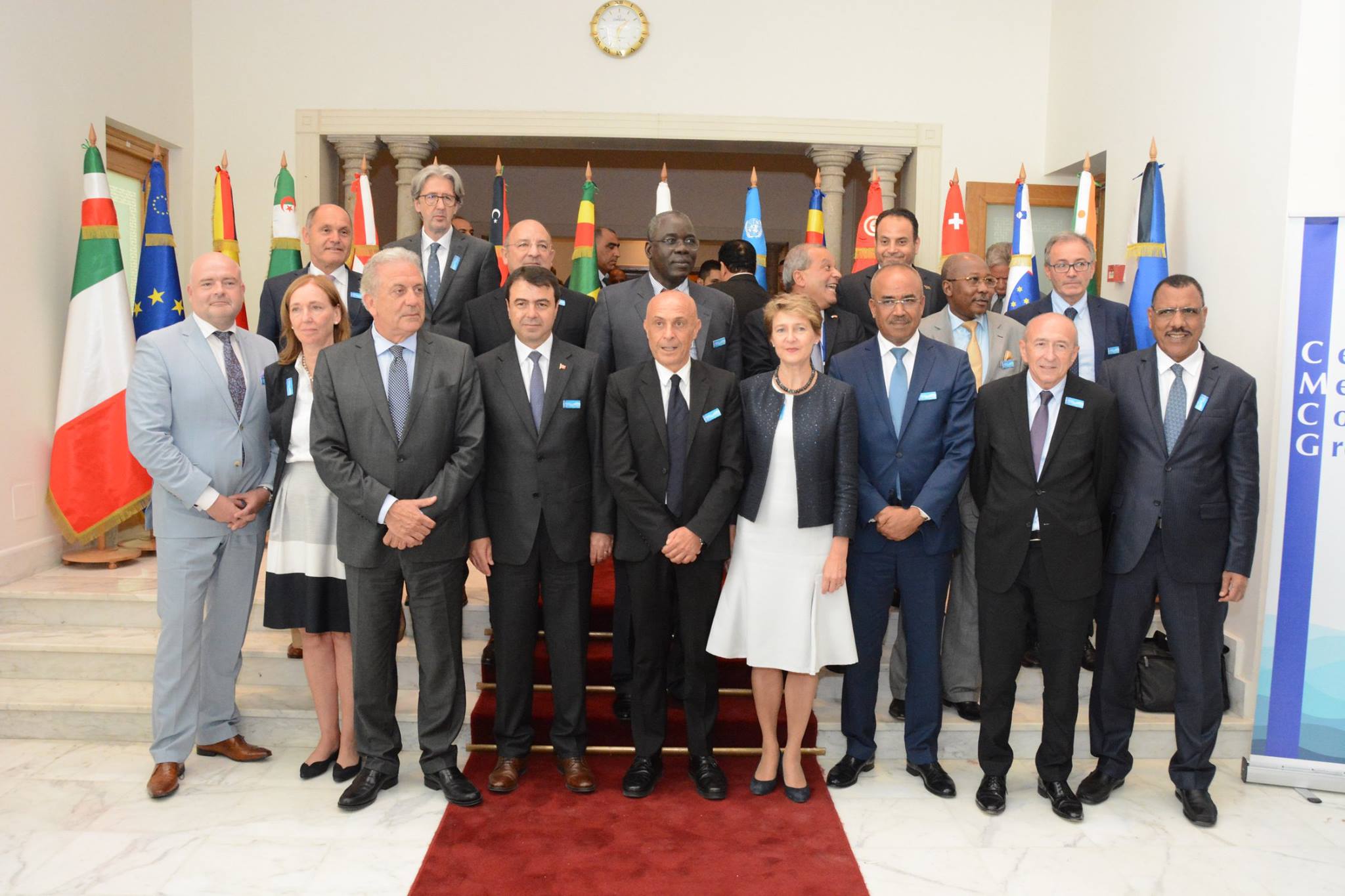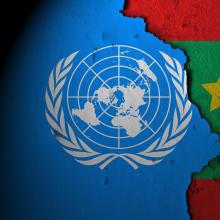March 01, 2023
By Alexis Thiry. Originally published on DAWN MENA Journal on February 28, 2023.
In late January 2022, Serbian authorities extradited Bahraini dissident Ahmed Jaafar Mohamed Ali back to Bahrain, in violation of an injunction of the European Court of Human Rights issued only three days prior. Bahrain's public prosecution claimed that Ali was "extradited from Serbia with the help of Interpol." In 2021, Serbian authorities arrested Ali on the basis of an Interpol "red notice" issued against him in 2015. Bahrain reportedly considered him a so-called high-value suspect as he was convicted in absentia on three separate counts of terrorism in 2013 and 2015—charges that human rights advocates widely condemned as trumped-up. Ali, a labor activist, had applied for asylum in Serbia, fearing that he risked torture and possibly death back in Bahrain.
Ali's case illustrates the politicization of extradition requests in the Middle East and North Africa and misuse of red notices circulated through Interpol. However, another entity involved in such extraditions has remained largely under the radar: the Arab Interior Ministers Council, an institution of the Arab League. Like Interpol, it has been accused of facilitating the extradition of political opponents, human rights defenders and persecuted minorities, prompting the question of what differentiates so-called "judicial cooperation" from transnational repression.
As a supranational police force, Interpol issues red notices at the request of its member states and circulates requests for cooperation to other states—what are known as diffusions—via its secure police communications network. After 9/11, red notices increased tenfold, from about 1,200 in 2000 to almost 12,000 in 2020. At the same time, there has also been an alarming phenomenon of governments using Interpol for political gain or revenge—targeting nationals abroad such as political rivals, critics and activists.
The United Arab Emirates and Egypt, to mention but two other examples, have also misused red notices for political and other improper purposes, including requesting the extradition of people accused of dishonoring checks or in the context of business disputes.
Subjects of Interpol's red notices may request their removal from the Commission for the Control of Interpol's Files, an independent body known as the CCF that reviews data contained in red notices. If the CCF reviews an individual's red notice and finds it to be in violation of Interpol's constitution and rules, it is deleted from the organization's systems. The CCF is the only useful, albeit limited, recourse to any individual subjected to abusive red notices.
Interpol's red notice system clearly suffers from several shortcomings. For instance, victims of abusive red notices are often unaware of their existence until they are arrested. Critics have also pointed out that those who dispute abusive red notices and diffusions do not have the right to a hearing, to examine evidence that governments produce against them, or to appeal the commission's decisions.
The Notices and Diffusions Task Force, established by Interpol's secretary general in 2016, may also unilaterally review red notices, including based on information received from member countries other than the requesting country. In the case of Yidiresi Aishan, a Uyghur activist also known as Idris Hasan who faced extradition from Morocco to China, Interpol canceled his red notice in August 2021—that is, five years after its issuance—invoking non-compliance with its statute and regulations on data processing.
Aishan had been arrested in Casablanca in July 2021, based on a red notice requested by China due to the suspicion of his membership to an organization classified by the Chinese government as "terrorist." Although Moroccan authorities chose to ignore the Task Force's decision, his case proved that Interpol can actively refuse to play a role in unlawful extraditions.
The same cannot be said of the Arab Interior Ministers Council. Established in 1982, its mission is to "develop and strengthen cooperation and coordinate efforts between Arab countries in the field of internal security and combating crime." The creation of the Council was followed by the entry into force in 1983 of the Arab Agreement for Judicial Cooperation, also known as the Riyadh Convention, which regulates extraditions in the 18 signatory Arab states.
Despite all member states of the Arab League being parties to the U.N. Convention against Torture, which guarantees that no one should be returned to a country where they would face torture, the Riyadh Convention does not refer to that obligation. Article 41 of the Riyadh Convention contains insufficient exceptions under which extradition cannot be carried out, including if "the crime for which extradition is requested is considered by the laws of the requested party as a crime of a political nature."
Although the extent of the Arab Interior Ministers Council's involvement in extradition proceedings is unknown, recent extradition cases facilitated by the Council revealed its controversial practices, which may have grave consequences for activists in exile.
Contrary to Interpol, the basic laws of the Arab Interior Ministers Council do not refer to any human rights standards, and individuals cannot file an access request nor demand the removal of arrest warrants diffused by the Council. Its ability to circulate arrest warrants most recently surfaced when Egyptian political commentator Sherif Osman was subjected to extradition proceedings in the United Arab Emirates in late 2022.
Osman was arrested in Dubai on Nov. 6, 2022, during a family visit. Though he was initially informed that his arrest was based on a red notice issued by Interpol at Egypt's request, it was later clarified that the warrant was circulated through the Arab Interior Ministers Council. His arrest was likely due to a video he had posted on his YouTube channel, in which he called for a peaceful protest during U.S. President Joe Biden's visit to Egypt to attend the COP27 climate conference in Sharm el-Sheikh.
Osman faced deportation to Egypt, where there were substantial grounds for believing that he would be subjected to torture given the Egyptian government's record of human rights abuses, until he was eventually released and authorized to leave the UAE in late December. Following his release, Osman told Democracy in Exile that the Arab Interior Ministers Council "is running a regional policing program that allows Arab nations to do what they cannot do using Interpol."
Given the lack of any oversight, it is feared that member states will increasingly turn to the Arab Interior Ministers Council to seek the extradition of dissidents who have the misfortune of crossing the border into another member of the Arab League.
For instance, Hassan Muhammad al-Rabea, a Saudi national from the country's Shi'a minority, was arrested at Marrakesh's airport based on an arrest warrant circulated by the Arab Interior Ministers Council on Jan. 14, 2023. The Saudi authorities were seeking his extradition because, they claimed, he had worked with "terrorists" in order to leave Saudi Arabia "irregularly"—charges based on Saudi Arabia's sweeping 2017 anti-terrorism law, which defined terrorism in an overly broad and vague way. Early this month, after Morocco's Court of Cassation ruled in favor of his extradition to Saudi Arabia—where he too faces a high risk of torture—he was extradited. Since then, his fate and whereabouts remain unknown.
In 1999, the Arab Interior Ministers Council and Interpol signed a memorandum of understanding providing a scope of "co-operation including the exchange of information, mutual investigative projects, database access, and all means of technical assistance in, but not limited to, criminal matters." In its preamble, the memorandum emphasizes "the role of the police authorities in maintaining law and order with due respect for human rights."
Article 4 (2) of the memorandum allows technical cooperation between both parties with the aim of "seeking each other's expertise to optimize the effects of such activities." However, it does not seem that this cooperation has led to an exchange of good practices on effective safeguards that would prevent politically motivated extradition requests, as well as violations of the principle of non-refoulement.
Individuals subject to extradition requests and human rights organizations representing them have very few options to successfully fight a forcible return. Victims and their representatives may request interim measures of protection from the United Nations human rights committees, known as its Treaty Bodies, but apart from several North African countries, most members of the Arab League do not recognize the Treaty Bodies' competence to receive individual complaints.
In the absence of any effective procedure for international investigation of potential abuses of extradition requests, or a settlement mechanism with widely recognized jurisdiction across the Middle East and North Africa, activists and dissidents throughout the region will remain within reach of the very states they have been trying to flee from.







